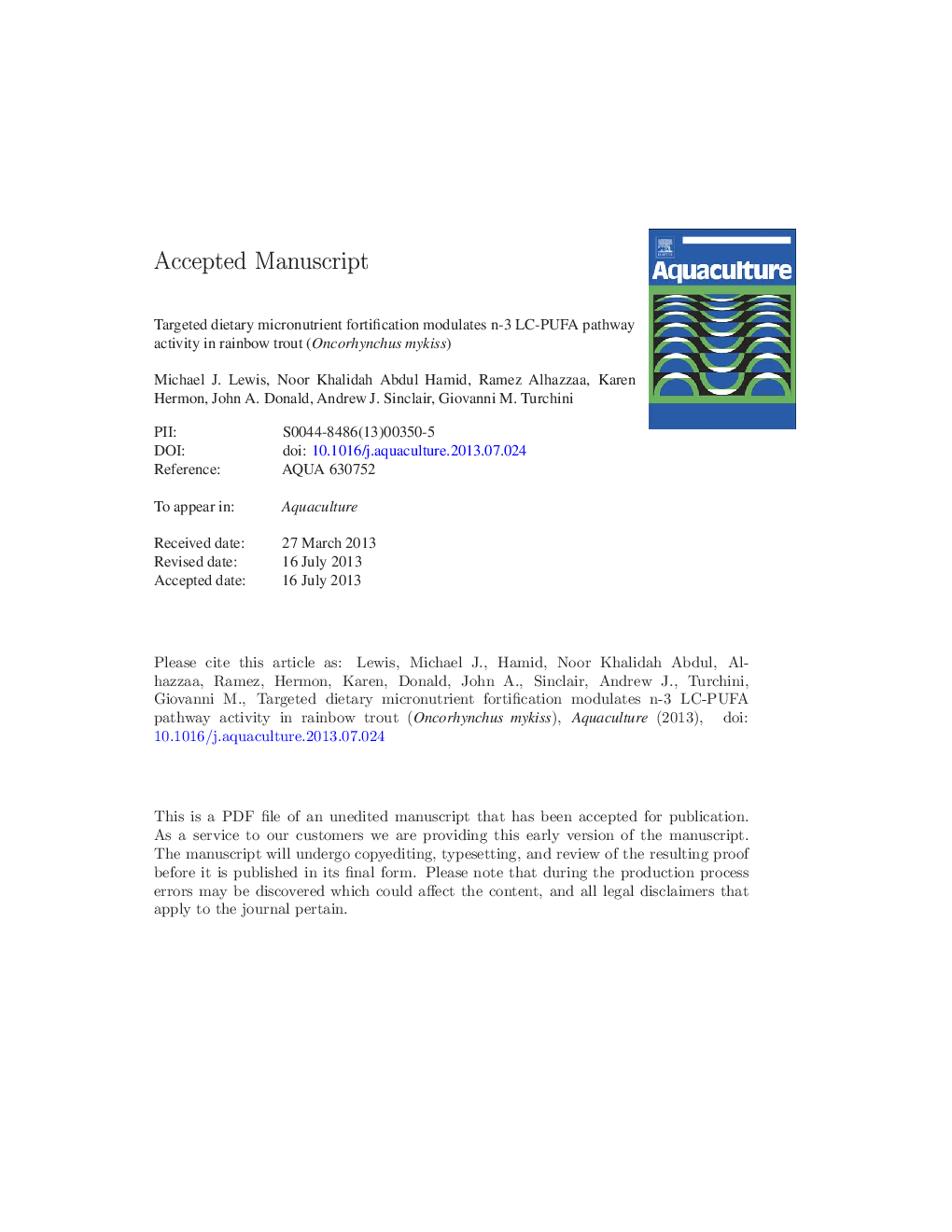| Article ID | Journal | Published Year | Pages | File Type |
|---|---|---|---|---|
| 8495508 | Aquaculture | 2013 | 32 Pages |
Abstract
Replacing fish oil (FO) in aquafeeds with sustainable alternatives such as vegetable oils (VO) compromises the content of n â 3 long-chain polyunsaturated fatty acid (n â 3 LC-PUFA) in the edible portions of farmed fish. Endogenous biosynthesis of n â 3 LC-PUFA from C18 precursors is catalysed by several enzymes, which have low activity in carnivorous fish. Rainbow trout were fed on VO-based diets supplemented with increasing levels of selected micronutrients as potential n â 3 LC-PUFA biosynthesis co-factors or coenzyme precursors: iron, zinc, magnesium, niacin, riboflavin, pyridoxine and biotin at 100, 200, 300 or 400% of their recommended dietary inclusion. Providing the substrate (ALA, 18:3n â 3) and the potential enzyme co-factors was assumed to enhance the efficiency of EPA (20:5n â 3) and DHA (22:6n â 3) production. Initial evidence was established when DHA and total n â 3 LC-PUFA content increased in the whole body of fish from the treatment with the highest micronutrient fortification. Fewer changes were observed in the fillet or liver which was consistent with a marginal regulation of the mRNA expression of key biosynthesis genes in the liver. The potential co-factors seem to stimulate the n â 3 LC-PUFA biosynthesis efficiency at the molecular and enzymatic level in rainbow trout fed on ALA-rich diet, leading to metabolic and chemical changes. The interactions between dietary substrate and enzyme co-factors/coenzymes need to be further investigated to advance lipid metabolism research and benefit the aquaculture industry.
Related Topics
Life Sciences
Agricultural and Biological Sciences
Aquatic Science
Authors
Michael J. Lewis, Noor Khalidah Abdul Hamid, Ramez Alhazzaa, Karen Hermon, John A. Donald, Andrew J. Sinclair, Giovanni M. Turchini,
